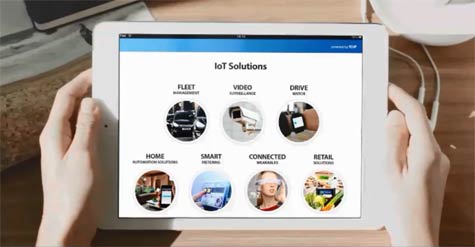At the Oracle OpenWorld 2015 conference this week, Tata Consultancy Services (TCS), in collaboration with Oracle, launched eight Internet of Things (IoT) services that it will manage on behalf of its customers.
Soumya Chatterjee, global solutions head for enterprise solutions at TCS, says the goal is to leverage TCS investments in building IoT applications across a hybrid cloud computing environment that connects Tata data centers to the 19 data centers distributed around the globe that Oracle uses to deliver cloud services.
The white-label hosted offerings span Connected Car, Fleet Management, Usage Based Insurance, Passenger/Vehicle Tracking, Smart Building, Video Surveillance, Asset Monitoring, and Wellness and Remote Healthcare running on a private cloud that organizations can rebrand as they see fit.
At the core of those application services is a platform as a service (PaaS) environment, dubbed TCS Connected Universe Platform (TCUP), that makes use of Oracle Communications Rapid Offer Design and Order Delivery (RODOD), Oracle Fusion Middleware, a TCS Big Data Analytics Platform running on an Oracle Big Data Appliance, and Oracle Communications Billing and Revenue Management software. TCUP service provides the connectivity management, device management, event processing, and device software integration required to drive IoT applications at scale, says Chatterjee.
Given all the risks associated with building IoT applications, Chatterjee says most organizations are a lot more interested in turning on a service to see if these applications add value than they are in spending years to build their own. That approach not only reduces their financial risks, but enables them to husband their capital until they decide enough value is being generated to build something more custom, says Chatterjee.
In fact, Chatterjee notes that a new generation of prescriptive analytics applications will enable organizations to optimize IoT processes at levels of global scale that previously would have been unimaginable.
Given the sensitivity of the data involved in those applications, most IoT environments are going to be deployed on a private cloud. But just because it’s a private cloud, it doesn’t necessarily follow that the internal IT organization needs to manage it.




